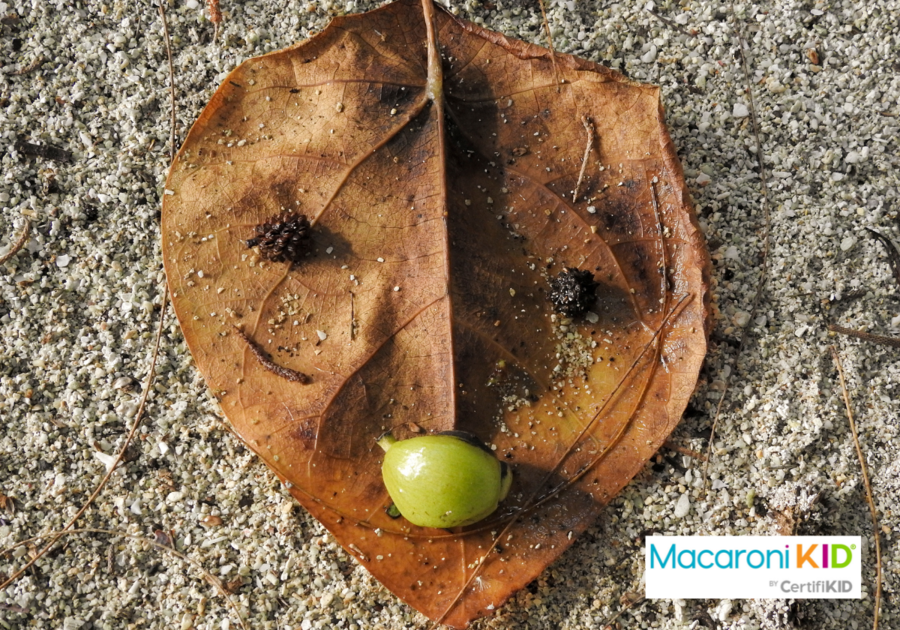There’s a crisp cool breeze outdoors and the streets and sidewalks are littered with beautifully colored leaves. Autumn has arrived, and with it the excitement of one of our favorite holidays: Halloween!! Here are some perfectly spooky activities that will delight your child’s sense of touch and enhance their fine motor coordination in the process. These projects can get a bit messy, so make sure to wear a smock and put a washable cloth/mat on your workspace (a garbage bag back works in a pinch, or a cardboard box).
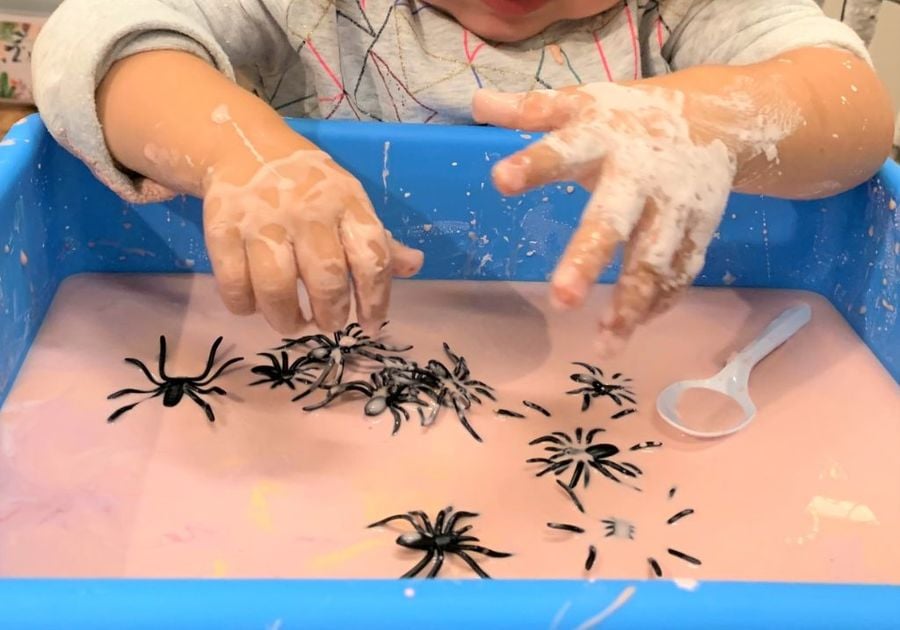 Rachel McMinn |
Orange Oobleck with Spiders
Materials needed:
- 2 cups cornstarch
- 1 cup water
- About 3 - 5 drops of food coloring (orange, purple or black work great)
- Plastic spiders (or other spooky-themed plastic toys)
Directions:
1. Combine the cornstarch, water, and food coloring. It should be hard to stir – Oobleck (the name of which, interestingly enough, is now trademarked but seems to have originated from a 1940s Dr. Seuss book called Bartholomew and the Oobleck) is a non-Newtonian fluid that rapidly moves between solid and liquid. The warmth of your hands and fingers melts the Oobleck and makes it appear runny, otherwise, it’s solid and hard to the touch! I always prefer to use my hands to mix the Oobleck so I can tell if it’s too dry or too runny and add either more water or more cornstarch to even things out.
2. Once you have the proper consistency (it’s oozy and gloopy and drips easily from your warm hands, but can also be picked up and rolled in a ball before melting), add in your spiders or other fun Halloween-themed toys and let your child explore!
3. A great item to add to this play is a colander or plastic fruit basket that the Oobleck can ooze and dribble through!
Don’t let the mess intimidate you, it’s very easy to sweep and clean the Oobleck. Once it dries, it’s back to the powdery cornstarch consistency.
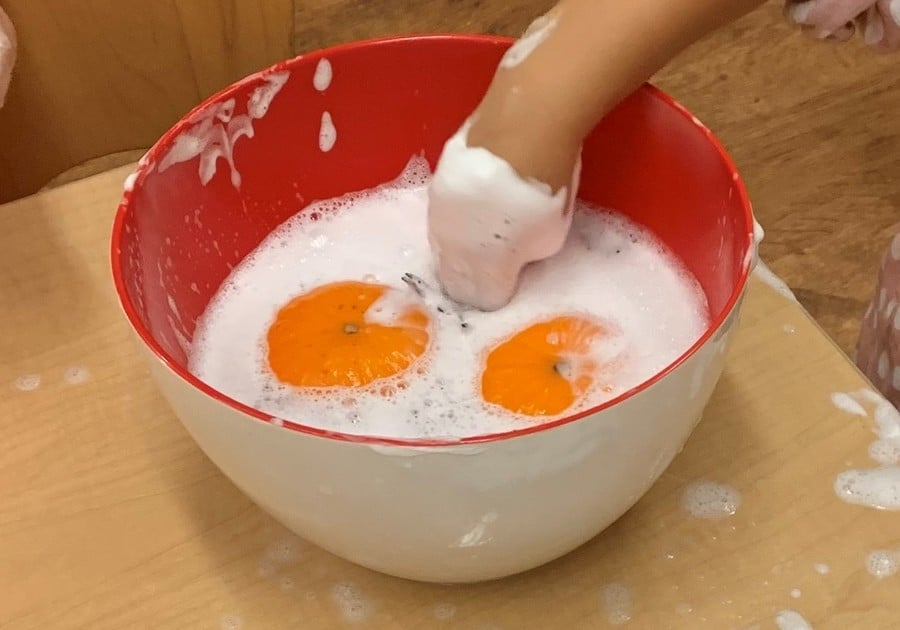 Rachel McMinn |
Mini Pumpkin Bath
Materials needed:
- Mini pumpkins or gourds
- Shaving cream
- Washcloth
- Bowl or bin of warm water, mixed with a little tear-free baby soap
- Paintbrushes
- Sponges
- Small cup for pouring
Directions:
1. Let’s set up a little bathtub for our pumpkins and gourds! In one bowl or tub, I like to squirt in some shaving cream and leave some paintbrushes and sponges there so your child can explore covering the pumpkin with the shaving cream. It gets slippery and fun to try to hold the soaped up pumpkin!
2. In a separate bowl or tub, have warm water mixed with some tear-free baby soap. Allow your child to transfer the pumpkins between the two different mixtures and provide sponges and washcloths to properly rinse off the pumpkins.
3. Water play is soothing but also teaches so many wonderful concepts – buoyancy, how water becomes whatever shape the container it’s in is, how to become independent and pour our own water ... and so much more.
This could easily be done during bath time as well!
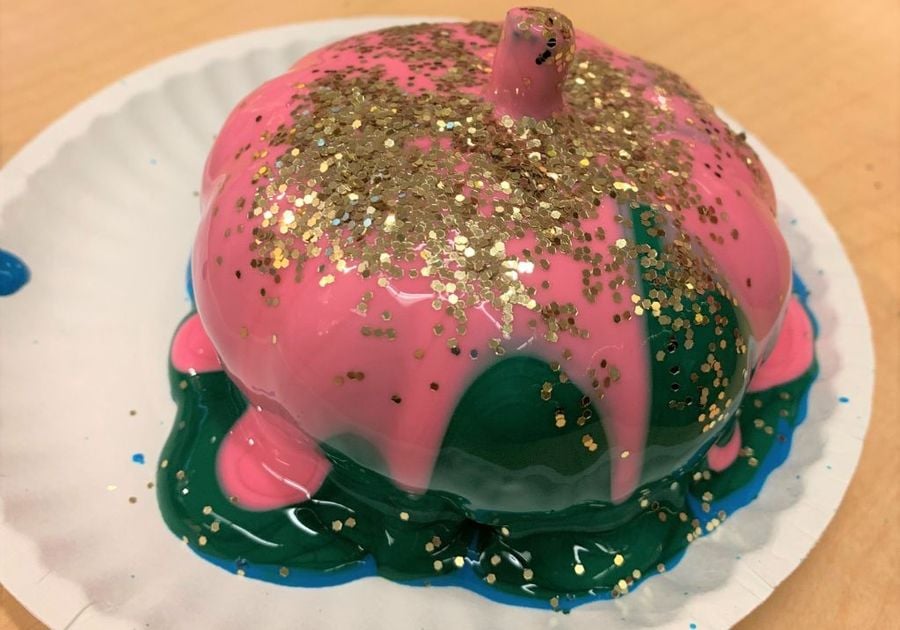 Rachel McMinn |
Pumpkin Pour Painting
Materials needed:
- Tempera paints
- Elmer’s glue
- Water
- Plastic cups
- Pumpkins
- Paper plates/butcher paper
- Glitter
- Mod Podge
Directions:
1. Gather all your materials. For each color paint that you would like to use, pour some into a plastic cup and add about a tablespoon of Elmer's glue. Mix together and then add in about a tablespoon of water to help thin the mixture out a little. This will help it pour easier and cover the pumpkin. Once you have all of your colors prepared, place your pumpkin in a cardboard box, on a paper plate, or on some butcher paper. You’ll want to make sure that whatever you put under the pumpkin is thick so the paint won’t leak through.
2. Select paint and pour it directly onto the pumpkin. It will drip down all over the pumpkin. Continue until you’ve used all of your desired colors. If you’d like, you can also sprinkle glitter on top!
3. After your pumpkin has completely dried, apply a layer of Mod Podge to seal the paint and add a glossy finish to your pumpkin.
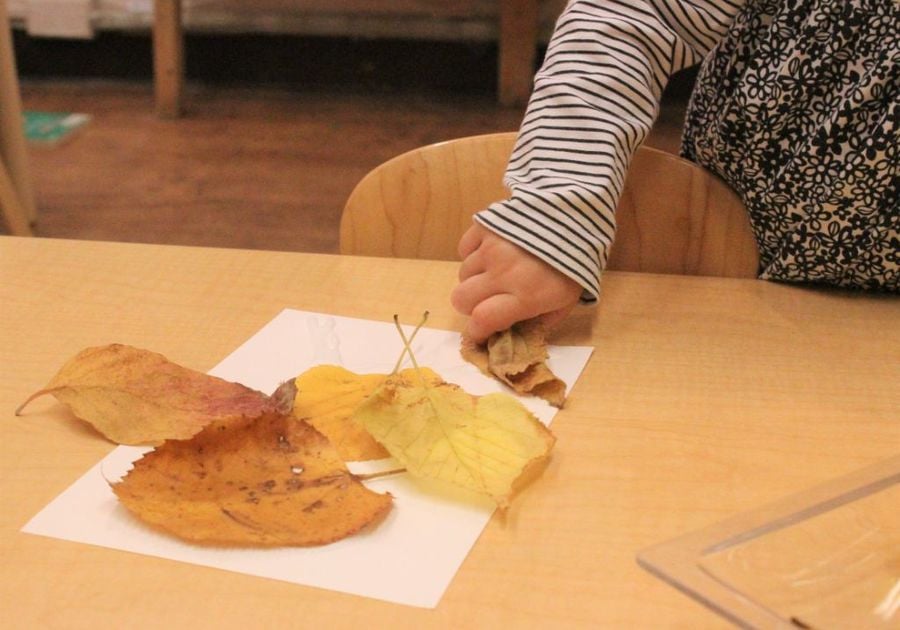 Rachel McMinn |
Leaf People Project
Materials needed:
- Collected leaves, acorns, small stones, sticks, etc.
- Elmer’s glue
- Cardboard or thick cardstock
Directions:
1. After completing a nature hunt outside to gather materials for this project, bring everything inside and get ready to turn your leaves into people!
2. Let your child explore the materials in an open-ended way. You can point out texture, color, how the item feels, and how it compares in size to the other materials you’ve collected. Once your child is ready, you can instruct them to select different body parts – head, eyes, nose, hair/hat, mouth, ears, body, arms, legs, and whatever else they think to add.
3. Help your child glue the leaves onto the cardstock to create your leaf people!
Rachel McMinn is an early childhood educator at Buckle My School Preschool in Tribeca, N.Y. She holds a Masters in Early Childhood Education from Hunter College and a Writing degree from Pratt Institute. This article originally appeared in Macaroni KID Lower Manhattan.

